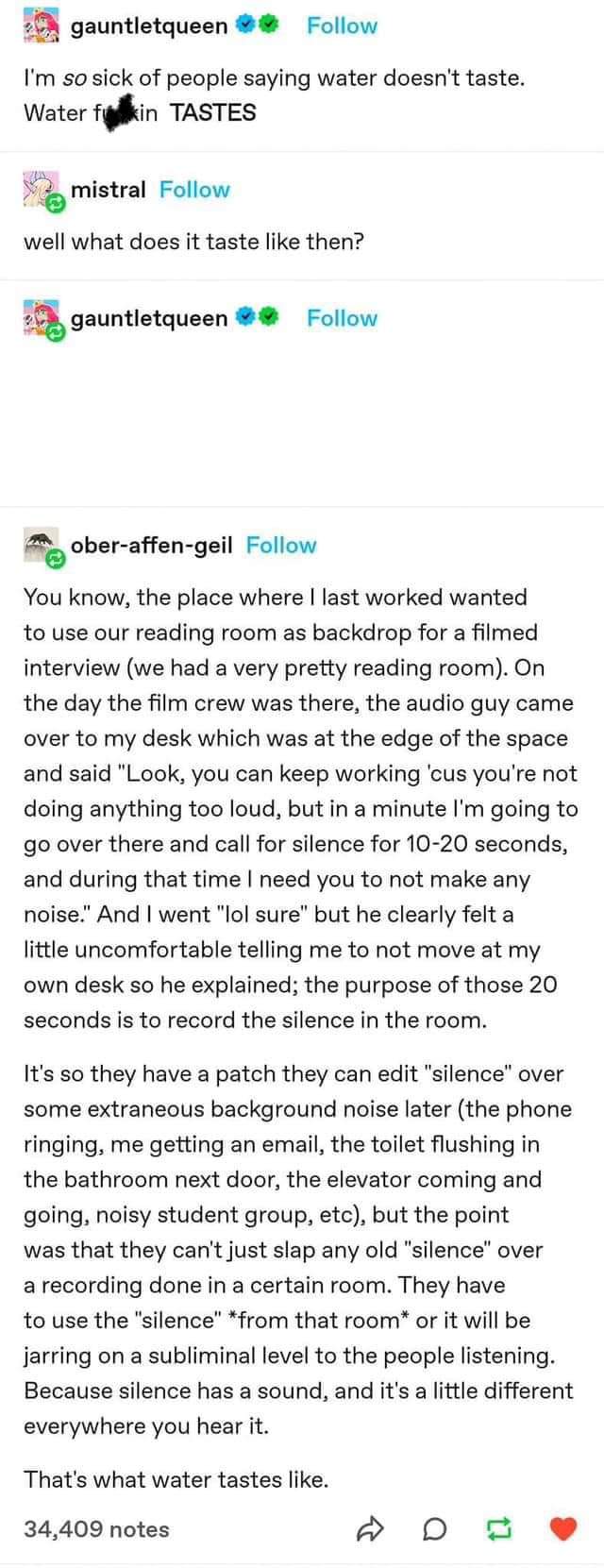this post was submitted on 18 Apr 2024
1292 points (97.9% liked)
Microblog Memes
8119 readers
3498 users here now
A place to share screenshots of Microblog posts, whether from Mastodon, tumblr, ~~Twitter~~ X, KBin, Threads or elsewhere.
Created as an evolution of White People Twitter and other tweet-capture subreddits.
Rules:
- Please put at least one word relevant to the post in the post title.
- Be nice.
- No advertising, brand promotion or guerilla marketing.
- Posters are encouraged to link to the toot or tweet etc in the description of posts.
Related communities:
founded 2 years ago
MODERATORS
you are viewing a single comment's thread
view the rest of the comments
view the rest of the comments

I dunno why you're being downvoted, you're right.
Pure H2O is rare, and generally only produced in labs. It's considered an industrial solvent. Usually the water we drink has very small amounts of minerals dissolved into it. As the previous poster was saying, albeit indirectly, that's what gives water it's flavor, and also what makes it safe for consumption.
A lot of things are water soluble. With no minerals in the water, you become the minerals that dissolve in water. You can taste pure H2O, if you can get a pure sample, but only a VERY small amount. Like, a sip at most. A few drops would be safer.
When I'm referring to the purity of my water in referring to the lack of presence of chemicals, like chlorine (used to sanitize water) and whatnot, as well as VOCs and other inorganic and organic compounds leeched into the water from the container or vessel used to store/transport the liquid. I'm certain my water still has minerals in it, on trace amounts, as there should be, but nothing that otherwise shouldn't be in drinking water.
Most water treatment plants will use chemicals like chlorine to kill harmful bacteria and microorganisms found in most water supplies. When the chlorine levels drop to a safe level, that treated water is released into the water supply mains to be delivered to you. Other natural impurities will exist, as they always do.
Usually the levels are too low to need to inform people that they exist. Your body will process them without issue. It just makes water taste bad to me. I can always tell if I'm at a restaurant if they are serving tap, filtered, or other kinds of water by how it tastes to me. The "flavor" is more of a measure of how pleased I am to drink it, less the kind of flavour you get from a meal. It's subtle, and I'm keenly aware of it because I've been drinking water from filtered sources for many years now. Stronger flavors like that you would get from Cola or other sodas, will numb you to impurities in the flavor of water. I gave up soda some time ago, and the differences are very apparent to me.
IDK. The science of water and purification is complicated. It must be impure to be safe, but it can't be so impure that it becomes a hazard.
It's tricky business, and something that I'm no expert in. I know enough to keep myself out of trouble. As long as the water doesn't "taste" bad, I'm fine with it.